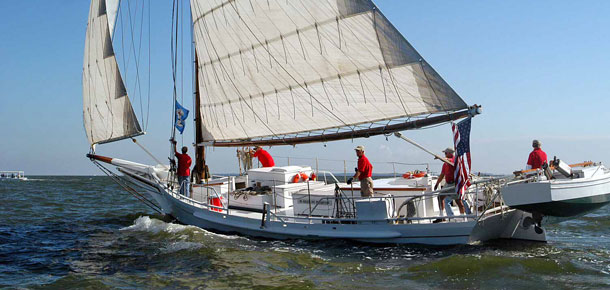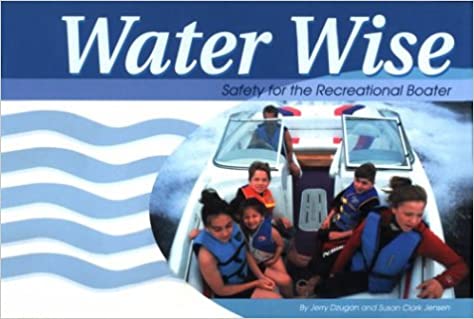Knauss legislative fellowships in Congress help build careers — and they're fun and educational. See our video and fact sheet for details.
Boating Safety

The Chesapeake Bay is dotted year-round with boats whose skippers take to the water for recreation, commerce, or both. In 2011, the state of Maryland reported over 200,000 registered boats and sea vessels.
All of these boaters can share the water without accidents if they follow safety rules like those established by the state of Maryland and the Coast Guard. Here are some key steps to take to keep you safe on the water.
Get Your Boat Checked For Safety
Even the most cautious boaters can develop problems with their vessels that could cause safety hazards on the water. The Coast Guard offers a free Vessel Safety Check program every year for recreational boaters.
Expand Your Safety Skills
Under Maryland’s Boating Safety Education Law, anyone born on or after July 1, 1972 is required to have a Certificate of Boating Safety Education in order to operate any mechanically propelled vessel on Maryland waters. The point is to require that younger generations of boaters possess fundamental knowledge of boating rules and safety so that eventually all boaters will as well. Boaters may obtain this certificate by taking a Maryland Basic Boating Course offered by the Maryland Department of Natural Resources.
Always Wear Your Life Jacket
In an emergency, it can be hard to reach life jackets you have stowed away on your boat. The Coast Guard recommends that all boaters and passengers wear life jackets each time they go out on the water to ensure safety. In Maryland, all passengers under 13 are required to wear a Coast Guard-approved life jacket on boats less than 21 feet in length.
Write a Float Plan
A float plan is a document describing key information about your boating plans and vessel that could help authorities rescue you in the event of an emergency. This plan should outline your boating itinerary including your time of departure and arrival and a time to contact authorities if you don’t arrive at the time described. It should also describe your boat and the number of passengers aboard. Give your float plan to a relative or friend in case you do not return or check in as planned. Download a sample float plan form (pdf).
Be Courteous
With potentially hundreds of ships traveling the Chesapeake Bay each day, it’s important for boaters to be aware of their surroundings and the other vessels on the water. The Maryland Natural Resources Police warn boaters in particular to be aware of their ship’s wake. A wake can prove dangerous to smaller ships passing too close. Boaters are responsible for any harm or damage done by their wake, so it is imperative to watch your speed and surroundings while on the water.
Additional Information
Lightning strikes: See Maryland Sea Grant’s information about how boaters can protect themselves from lightning out on the Bay in open water.
Boating Safety Program, Maryland Department of Natural Resources






